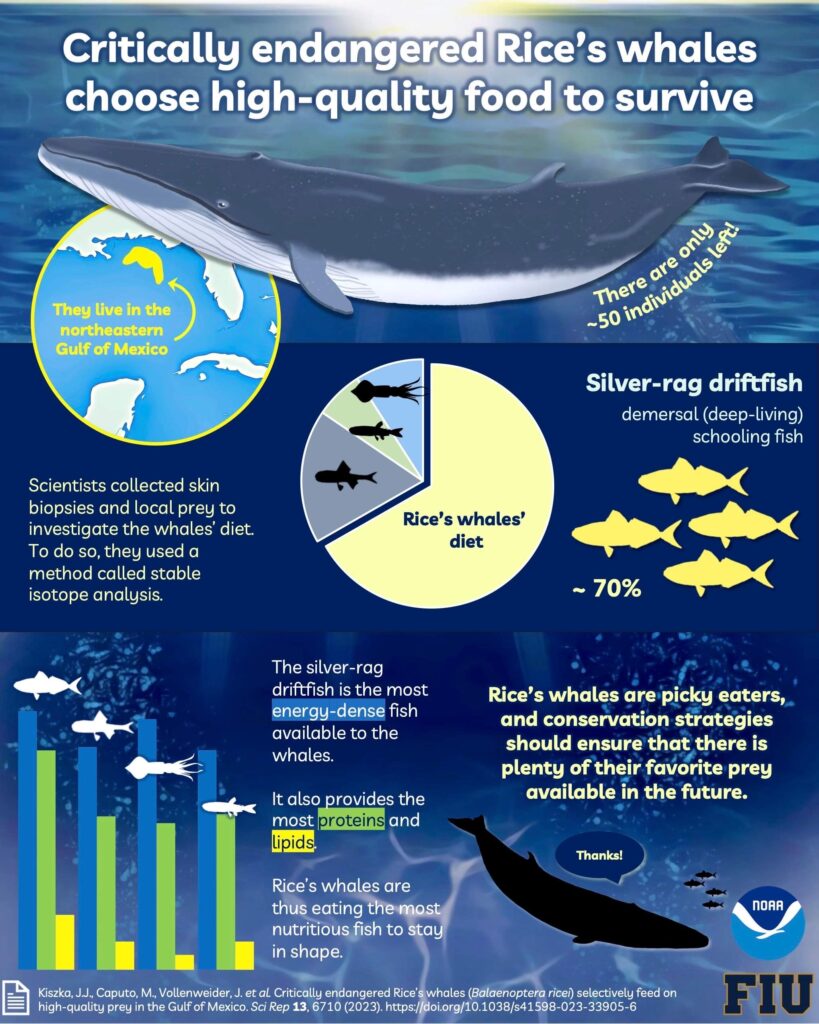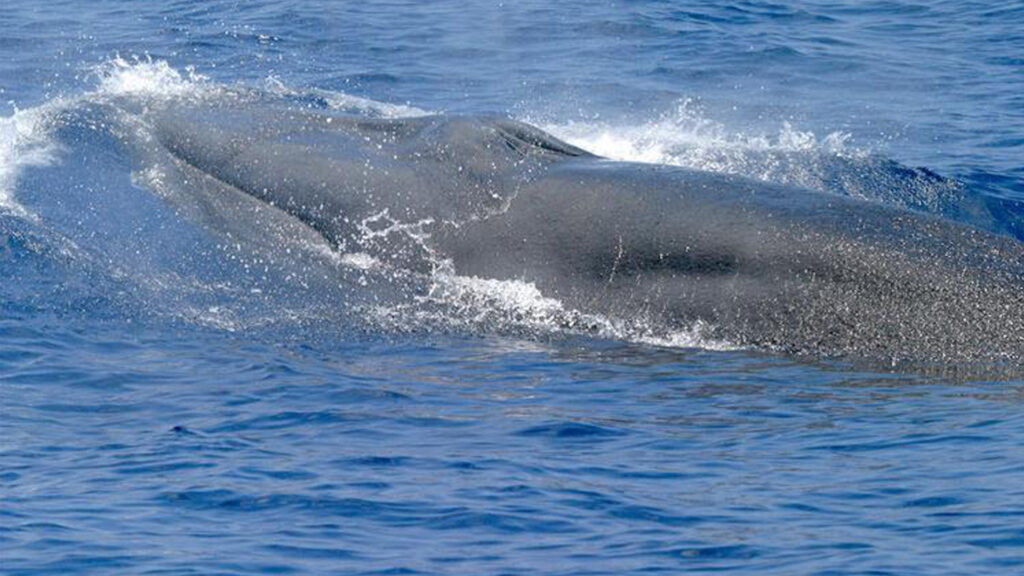By JoAnn Adkins, Florida International University

One of the world’s most endangered whales is a picky eater. Their meal of choice is an abundant little schooling fish, and scientists say, though common, this fish must be considered as part of conservation strategies for the critically endangered whale.
Found exclusively in the Gulf of Mexico, Rice’s whales are a newly discovered species once believed to be a subspecies of the more geographically diverse Bryde’s whale. It was just two years ago when scientists announced, after examining genetic and anatomical evidence, that the Gulf whales are actually their own distinct species.
It is believed only 50 Rice’s whales remain and they primarily dine on Ariomma bondi, more commonly called silver-rag driftfish, according to new research led by FIU. Identifying their primary prey is an important first step in accelerating conservation for this newly identified species, according to FIU marine scientist Jeremy Kiszka, lead author of the research. He says even though their primary prey is abundant today, that could easily change in a region so heavily impacted by people and industrial activity.
“Rice’s whales need high-quality food, which might make them more vulnerable to climate change and fisheries impacts if their main prey was affected by any impact,” Kiszka said. “Previous research shows that being specialized makes you more vulnerable, particularly if your preferred prey experiences decline.”
Rice’s whales engage in deep dives to forage for food, an effort that requires a lot of energy. While silver-rag driftfish were not the only fish found in the Rice’s whales’ diet, they were the primary prey. The small fish have a high caloric content, which can give the whales more energy. They also swim in large schools, making them an easier target. Either of these factors, or perhaps both, make them an ideal meal for the whales.

“These research findings mean Rice’s whales are more vulnerable than we might have thought,” said marine scientist Mike Heithaus, executive dean of FIU’s College of Arts, Sciences & Education and co-author of the study. “We need to be sure we are protecting their habitat and that of their prey.”
The research began in 2017, which means the team was unaware of the species distinction that would be revealed in 2021. Finding out the whales in the Gulf were actually a new species to science only served to intensify Kiszka’s interests in the large marine mammal. He plans to continue to research the Rice’s whales and help improve scientific knowledge of the species in an effort to save the species from extinction.
The research was published last week in Scientific Reports. In addition to Kiszka and Heithaus, the research team also included Michelle Caputo from Rhodes University in South Africa; Johanna Vollenweider from Auke Bay Laboratories in Alaska; Laura Aichinger Dias from NOAA’s National Marine Fisheries Service (NMFS) and the University of Miami; and Lance Garrison from NMFS.
This piece was originally published at https://news.fiu.edu/2023/newly-indentified-whales-favored-prey-is-not-endangered-but-the-whale-is
Sign up for The Invading Sea newsletter by visiting here.



